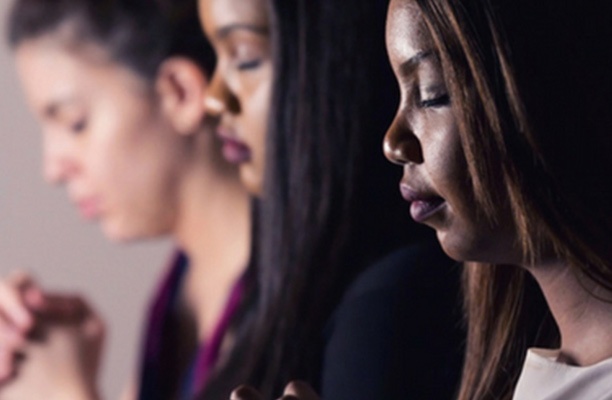Throughout Scripture, two words are often seen together: prayer and fasting. Though prayer is often discussed in modern churches, fasting receives notably less attention in some circles. When the Bible says, “with prayer and fasting,” what does it mean? Is fasting still relevant today? And if so, how does one actually do it? These questions and others in this “beginner’s guide” to Christian fasting.
What is Fasting?
According to Pastor David Mathis, “Fasting is voluntarily going without food — or any other regularly enjoyed, good gift from God — for the sake of some spiritual purpose. It is markedly counter-cultural in our consumerist society…”
Fasting is a way to set aside our earthly desires to intensely focus on God. It was so prevalent a practice in Judaism that it is talked about in Scripture as an inevitability. Jesus’ language in the Book of Matthew suggests that fasting is not a matter of “if,” but “when.” He said:
“And when you fast, do not look gloomy like the hypocrites, for they disfigure their faces that their fasting may be seen by others. Truly, I say to you, they have received their reward.” - Matthew 6:16
And Jesus said to them:
“Can the wedding guests mourn as long as the bridegroom is with them? The days will come when the bridegroom is taken away from them, and then they will fast.” - Matthew 9:15

Though fasting is traditionally defined as abstaining from food, you can also fast from other things that take up your time and attention, like screen time, social media or alcohol. In ancient times, the preparation and consumption of food took up a great deal of time and energy. The time no longer spent cooking, eating and cleaning was set aside for intentional prayer and the sacrifice of not eating brought attention to spiritual health.
Read Also: Making Time for Prayer: Why Putting God First is Best
Mathis notes the distinction between fasting as a Spiritual practice and merely going hungry:
Fasting isn’t merely an act of self-deprivation, but a spiritual discipline for seeking more of God’s fullness. Which means we should have a plan for what positive pursuit to undertake in the time it normally takes to eat….Each fast should have a specific spiritual purpose...Without a purpose and plan, it’s not Christian fasting; it’s just going hungry.
Why People Fast
In some religions and cultures, fasting is a mandatory practice. For fitness gurus today, fasting practices are sometimes used to lose weight, detox the body, or boost metabolism. But why do Christians fast? After all, fasting is never explicitly commanded in the Bible.
Though it is not a requirement, Scripture indicates that fasting was a normal and spiritually beneficial practice in biblical times.
Moses fasted as he received the Ten Commandments. Esther asked her attendants to fast and pray before her encounter with King Xerxes. Daniel fasted before prophesying. Even Jesus fasted for 40 days and 40 nights in the desert, and there are many more examples of fasting in the Old and New Testaments.

Read Also: Creative Ways to Make Your Prayer Time Even Better
But why did these Biblical figures fast? And why do Christians fast today? Here are some common reasons:
Repentance
Fasting accompanies repentance, especially in the Old Testament.. Though Christians turn to Christ to forgive our sins, the practice of fasting is still powerful when accompanying the need for forgiveness.
Supplication
Supplication is “the action of asking or begging for something earnestly or humbly.” When making a request of God, fasting traditionally signifies sincerity and sacrifice. In 1 Samuel, Hannah fasted and prayed for a son.
Insight
Many believe that fasting brings a greater clarity to God’s will. Ridding ourselves of worldly distractions makes it easier to listen to God’s voice and the nudging of the Holy Spirit.
Tradition
Throughout history and today, there are specific times when Jews, Catholics, and some Protestants choose to fast. For example, the practice of Lent is one of the most common forms of modern fasting. Lent is the period between Ash Wednesday and Easter when Catholics (and some Protestants) give something up for 40 days.
Is Fasting Relevant Today?
If it is hard to draw connections between an ancient practice such as fasting and our modern world, consider this: though food preparation and consumption don't take up a good portion of our energy and attention any longer, many other things do.
Social media and other entertainment are frequent distractions. The purpose of fasting, to rid ourselves of distractions and focus on Christ, is perhaps more relevant than ever in our modern world. This is why many pastors suggest fasting, not from food, but from anything that takes away from our focus on God.
Read Also: Prayer Matters: Inside America’s Historic Reliance on God

How to Fast
Ready to fast, but not sure how to start? Here are three important steps:
Know Your Purpose
We’ve discussed reasons why others fast, but why are you fasting? It is important to start your fast with a purpose in mind, something to keep you going even when your resolve wavers. Maybe you have a specific request for God, or maybe you just need to hear His voice. Whatever the reason, keep it on your mind throughout the fasting journey.
Start Slow
Don’t expect to immediately go several days and nights without food. Instead, consider skipping a meal for prayer, or a juice fast. If you are pregnant, nursing, or have a health condition, be sure to consult a doctor before fasting. Remember, the goal is to focus on God, not hurt yourself.
Have a Plan
Develop a plan for what you will do with the time you would normally spend cooking or eating. Maybe you’ll pray, or participate in an intense Bible study, or journal. Relate your plan to the fast’s purpose.
For more faith and family content, be sure to subscribe to the Pure Flix Insider.

Sarah Hartland
Sarah Hartland knew she wanted to be a writer from the time she wrote her first short story in the fourth grade. By the time she was in high school, she had written two novellas and countless short stories. It was her love of storytelling that led her into marketing and media.
Sarah freelanced throughout her time at Colorado Christian University, where she graduated with a Bachelor's degree in Business Administration. At CCU, Sarah competed in speech and debate across the country, securing multiple awards and a national debate championship. She co-lead CCU's first-ever broadcast media program, CCU.TV, and served as the program's Student Producer during her senior year.
When she's not writing blog posts or editing a video, Sarah loves to swing dance, ski, travel, or visit her seven younger siblings in Montana.


COMMENTS